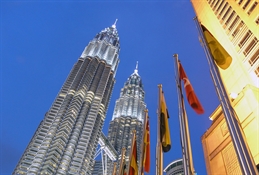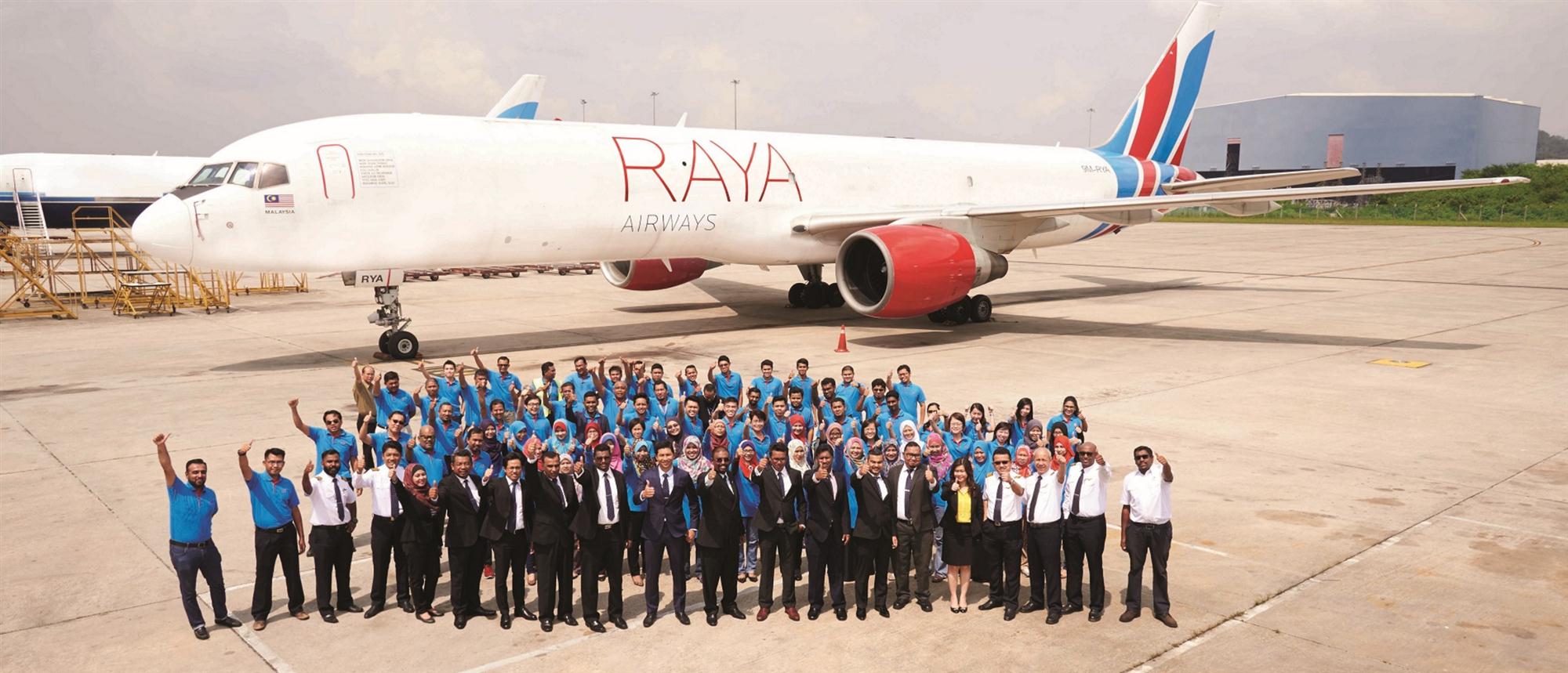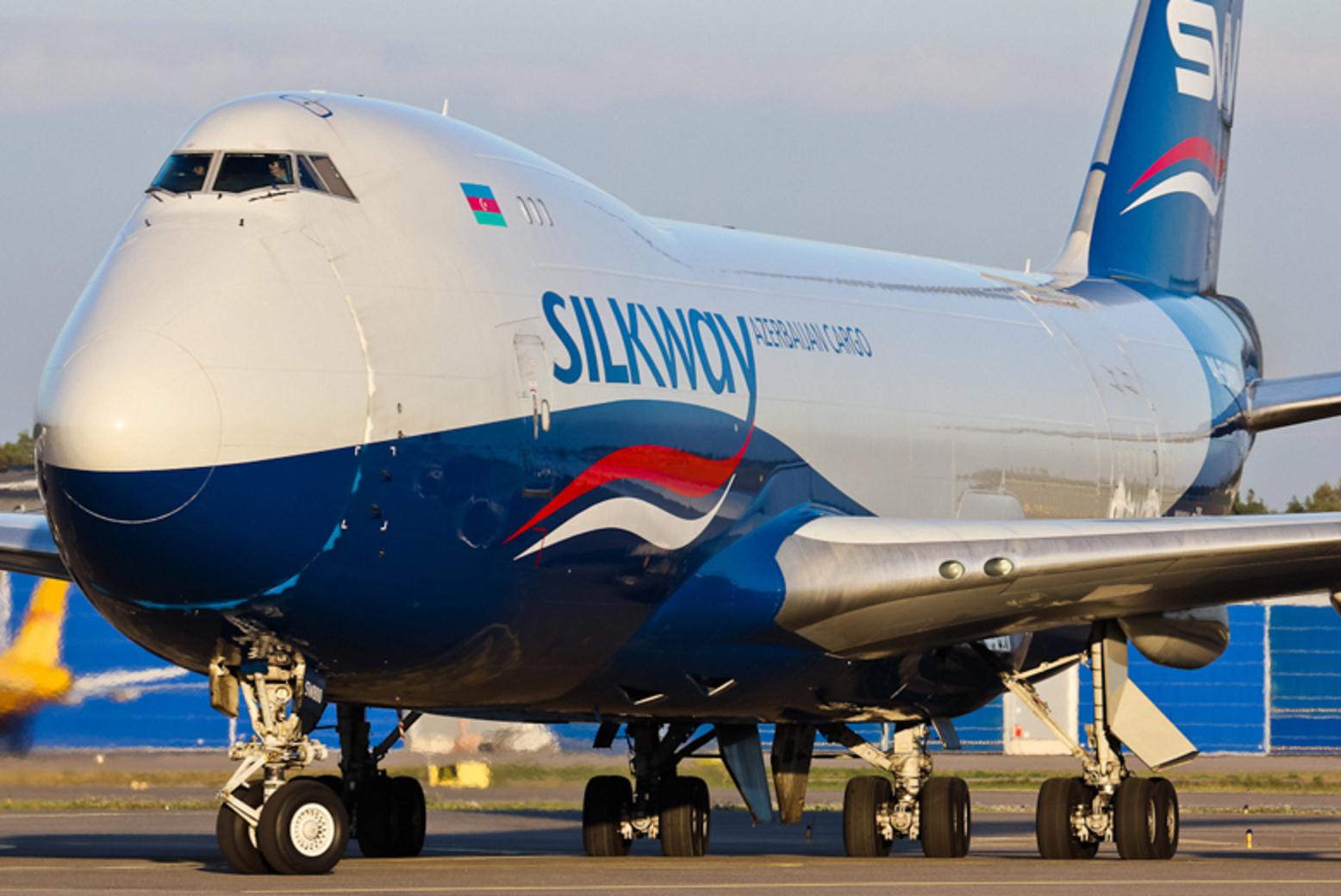
The fight between two of Malaysia’s airlines for the country’s cargo market is about to get tougher.
Malaysia Airlines’ cargo division MAB Kargo announced in May 2016 that it would be applying for its own air operator’s certificate and function as a separate company from Malaysia Airlines Berhad in 2017. The two units will continue to be wholly owned subsidiaries of the newly established Malaysia Aviation Group.
“By having our own AOC and being an independent business unit, we will have more flexibility to manage the network, respond faster to the market, and increase operational efficiency,” says Ahmad Luqman Mohd Azmi, chief executive officer of MAB Kargo. “Part of the network plan is for MAB Kargo to forge partnerships or alliances to expand the market reach. Of course, all this comes with more accountability to make the company profitable.”
According to Luqman, who says that the company is performing about 92% better since implementing network changes in 2015, the carrier has a few things on its to-do list for the rest of the year.
“We will continue focusing on our network strength in the Asia region, and grow our business by working closely with our customers,” he says. “In addition, we will also continue exploring partnership opportunities where we can complement our network and expand internationally. Finally, we will refine our product portfolio and continue our efforts in the e-commerce sector. This is the bright spot for the industry and we want to be part of the growth.”
As MAB Kargo concentrates on a smaller-scale operation, another carrier based in the country is looking to enlarge its presence on the intra-Asia market.
Raya Airways, which had a fleet consisting of two Boeing 727-200Fs and a 757-200F, took delivery of its first dry-leased 767-200F in March 2016. The company plans to expand its network to include Mumbai, Delhi, Seoul, Shanghai and Tokyo, and to have at least nine aircraft by 2017, more than MAB Kargo’s fleet of four Airbus A330-200Fs and two 747-400Fs.

Lee Shashitheren, executive director and CEO of Raya, doesn’t deny that MAB Kargo’s restructuring will have an impact, but thinks that whether it will be positive or negative is still a question to be answered.
“In my opinion it’s a mix, because whenever MAB stops a particular route, it creates a gap,” he says. “That gap will somehow be filled, whether we like it or not. How it is being filled is another question. Are we going to be the one to fill it? I don’t think so, at least in the near future, because their network is very large and we are not up to speed to be there today. When somebody else fills those gaps, are we capable of taking them back? If a route that they cancel is the same route that we’re going to take over, then it will be positive.”
But at the end of the day, Shashitheren says he welcomes competition and that Raya needs to look at how it can benefit from being a friendly competitor.
“We have to look at it from an industrial angle,” he says. “As a country which has two strong airlines, we can create a very good trade lane into and out of Malaysia, as well as the hubbing services for that. The industry benefits, and the option of cargo moving via Malaysia is greater. We do have very able competitors in the neighbouring regions, so we need to look at how we as a component in the Malaysian industry are going to benefit.”
Even though Malaysia Airlines is state-owned and Raya is not, Shashitheren says that the local authorities have been supportive of Raya’s expansion plans and needs.
“I can clearly attest to that,” he says. “Our 767-200F is the first one in Malaysia, so we had to do the first-of-type certification. We did all that, got the Malaysian 9M registration and got our AOC within two months. That is an amazing speed and that’s the level of support that we’re getting.”
But one area where Raya can’t compete with MAB Kargo for now is Europe. Even though London is now the only European destination served by Malaysia Airlines’ own passenger aircraft, the cargo division is turning to strategic partnerships to maintain a reduced presence in Europe. In March, MAB Kargo signed a block space agreement with Azerbaijan’s Silk Way West Airlines on a twice-weekly 747-8F flight between Kuala Lumpur and Amsterdam via Baku.

“After we made the changes within our own network, we realized that we needed to look for a partner who could provide the capacity for traffic to the EU region and who could work with us to support our customers with reliable service,” says Luqman. “We have been working with the Silk Way Group when we flew our own freighters to Baku in 2012. The partnership with Silk Way West is a win-win for both companies as we complement each other’s networks and both teams are committed to make this partnership a success.”
Despite having a clear plan, the road that lies ahead isn’t necessarily going to be much easier for Luqman, who says that there is no lack of challenges the cargo industry will have to face.
“Slow traffic growth combined with added capacity will continue to be one of the greatest challenges for all carriers,” he says. “In addition, as more carriers are putting effort and investment into specific industry sectors such as IT and pharma, it will be more challenging for these sectors to command high yields as they have been able to in the past several years. E-commerce is growing, but carriers need to invest in IT in order to attract the business.”
Luqman is nevertheless upbeat about how the Malaysian market will perform in the years to come.
“The market overall is going to be challenging in the short term, and headwinds will continue,” he says. “However, Malaysia’s economy is projected to have healthy growth of between 4% to 5% in the long term and Asia as a region will do relatively well too, so we are cautiously optimistic about the future.”
By Jeffrey Lee
Asia Cargo News | Hong Kong




